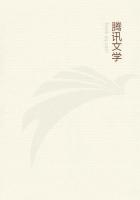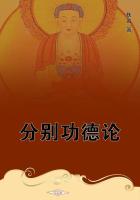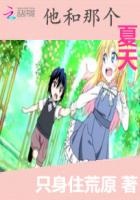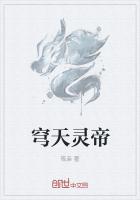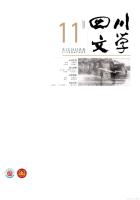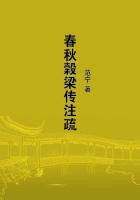I.
Public instruction and its three effects. - Influences of the master, of the pupils on each other, and of discipline. - Case in which all three tend towards producing a particular type of man.
AT fixed intervals a man, in a room, gathers around him children, youths, a group of young people, ten, twenty, thirty or more; he talks to them for one or two hours and they listen to him. They sit alongside of each other, look in each other's faces, touch each other's elbows, feel that they are class-mates, of the same age and occupied with the same tasks. They form a society and in two ways, one with another and all with the master. Hence they live under a statute: every society has one of its own, spontaneous or imposed on it; as soon as men, little or big, come together in any number, in a drawing-room, in a café, in the street, they find themselves subject to a local charter, a sort of code which prescribes to them, or interdicts a certain sort of conduct. And so with the school:
positive rules along with many tacit rules are here observed and these form a mould which stamps on minds and souls a lasting imprint.
Whatever a public lesson may be, whatever its object, secular or ecclesiastic, whether its subject-matter is religious or scientific, from the bottom to the top of the scale, from the primary school and the catechism up to the great seminary, in upper schools and in the faculties, we find in abridgment the academic institution. Of all social engines, it is probably the most powerful and the most efficient; for it exercises three kinds of influence on the young lives it enfolds and directs, one through the teacher, another through the fellow students and the last through rules and regulations.
On the one hand, the master, considered a scholar, teaches with authority and the pupils, who feel that they are ignorant, learn with confidence. - On the other hand, outside of his family and the domestic circle, the student finds in his group of comrades a new, different and complete world which has its own ways and customs, its own sense of honor and its own vices, its own view of things (esprit de corps), in which independent and spontaneous judgments arise, precocious and haphazard presentiments, expressions of opinion on all things human and divine. It is in this environment that he begins to think for himself, in contact with others like himself and his equals, in contact with their ideas, much more intelligible and acceptable to him than those of mature men, and therefore much more persuasive, contagious and exciting; these form for him the ambient, penetrating atmosphere in which his thought arises, grows and shapes itself; he here adopts his way of looking at the great society of adults of which he is soon to become a member, his first notions of justice and injustice, and hence an anticipated attitude of respect or of rebellion, in short, a prejudice which, according as the spirit of the group is reasonable or unreasonable, is either sound or unsound, social or antisocial. - Finally, the discipline of the school has its effect. Whatever its rules and regulations may be, whether liberal or despotic, lax or strict, monastic, military or worldly, whether a boarding or a day school, mixed or exclusive, in town or in country, with predominance of gymnastic training or intellectual efforts, with the mind given to the study of things or to the study of words, the pupil enters into a ready-made setting. According to the diversities of this setting or framework he practices different exercises; he contracts different habits; he is developed or stunted physically or morally, in one sense or in a contrary sense. Hence, just as the system is good or bad, he becomes more or less capable or incapable of bodily or mental effort, of reflection, of invention, of taking the initiative, of starting an enterprise, of subordinating himself to a given purpose, of willing, persistent association, that is to say, in sum, of playing an active and useful part on the stage of the world he is about to enter upon. Observe that this apprenticeship in common, sitting on benches according to certain regulations and under a master, lasts six, ten, fifteen years and often twenty; that girls are not exempt from it; that not one boy out of a hundred is educated to the end at home by a private teacher; that, in secondary and even in superior instruction, the school wheel turns uniformly and without stopping ten hours a day if the scholar boards outside, and twenty-four hours a day if he boards within; that at this age the human clay is soft, that it has not yet received its shape, that no acquired and resistant form yet protects it from the potter's hand, against the weight of the turning-wheel, against the friction of other morsels of clay kneaded alongside of it, against the three pressures, constant and prolonged, which compose public education.
Evidently, there is here an enormous force, especially if the three pressures, instead of opposing each other, as often happens, combine and converge towards the production of a certain finished type of man;if, from infancy to youth and from youth to adult age, the successive stages of preparation are superposed in such a way as to stamp the adopted type deeper and with more exactness; if all the influences and operations that impress it, near or far, great or small, internal or external, form together a coherent, defined, applicable and applied system. Let the State undertake its fabrication and application, let it monopolize public education, let it become its regulator, director and contractor, let it set up and work its machine throughout the length and breadth of the land, let it, through moral authority and legal constraint, force the new generation to enter therein - it will find twenty years later in these minors who have become major, the kind and number of ideas it aimed to provide, the extent, limit and form of mind it approves of, and the moral and social prejudice that suits its purposes.

